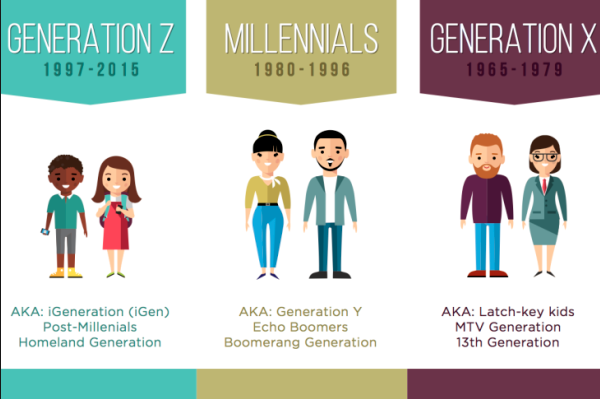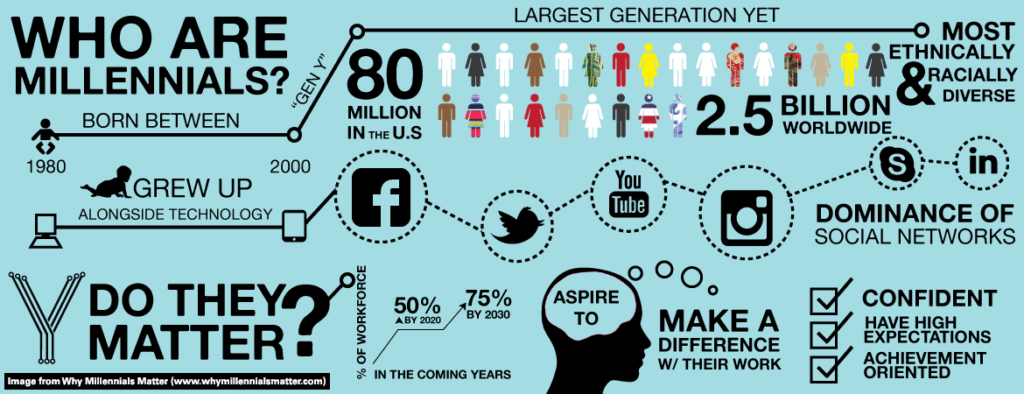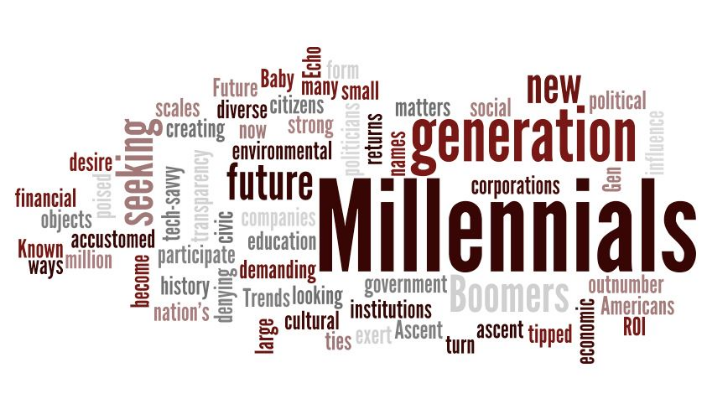I was born in 1995 and am one among the last batch of millennials produced on this planet. Yes, I called myself a batch of production and yes, I do have a decent reasoning behind doing so. I consider myself a part of the larger functioning of this world that operates under the law made by our previous more successful, more self-righteous and of course, more “invade outer space and dominate aliens” dominating Gen X.

I have been told my entire life what it is that I am supposed to be. I am supposed to be special. I am supposed to be educated; I am supposed to be independent, smart, rich, pretty, kind and every other positive adjective in the Oxford dictionary known to exist.
What I have not been told? That there are 73 million other millennials walking this earth who are supposed to be very exactly whatever it is that I am to be.
The meaninglessness of this prospect is what makes me and my fellow millennials lean towards a sense of humor that seems, and perhaps, is very weird. We find solace from our heavy burden of failing miserably at fulfilling the expectations that we have been shouldered with through our dark and even bizarre sense of humor. Attend a good school, get a good job, marry the right person and when all of this fails, console yourself by relating to humor inexplicable otherwise.
The modern creators of comedy have turned to absurdism and Dadaism to placate their needs for relating to their audience in this world that survives alone through its misery of unfulfilled expectations and disgust for the current societal ways. Unlike traditional comedy, where the comedians would expect the audience to take the act at its face value and appreciate it without trying to interpret it otherwise, modern comedians have a desire to capture a place in the dark minds of the millennials. And what better way to it than to pinpoint the areas that hurt the most and turn it into a laughing scheme in an attempt to feel togetherness in failure and absurdity?

Most millennial comedians have taken upon themselves the responsibility to interconnect their audience with each other. They believe that comedy will bring people together in their misery and in that they have turned self-insult into a way of coping with the everyday anxiety that most young people go through. Because if I myself laugh at my failures, it will not hurt as much when others do; or so I believe.
Not to forget our lifeline of relief from the stresses of life, shared religiously in group chats and laughed at even at the most serious of hours: memes. I do wonder sometimes which of the following statements is true. That memes are relatable to every situation in the life a millennial or every life situation of a millennial has a relatable meme. Either way, memes have become so inbuilt into the systems of millennials that our lives are starting to feel like memes. Yes, we now officially call ourselves living memes.
The greatest companion to these memes is the internet, which allows users to distort the memes according to their culture and experience. These memes start making loops of the internet and stay relevant even years after being introduced as new versions are added every day to the database of memes on the internet each day.
The internet has shown us loops of disgusting and wasteful memes that could not be more relatable to the millennials. In fact, modern members are returning back to classical art in order to reshape them using dark and dirty humor that the young generation can relate to. The famous painting of Mona Lisa has visited each of our feeds, only that now she has lesser clothes and a duck face. Our dear Spongebob has become a sex god who is presumably fucking both Patrick and Squidward and I can’t deny that is not the way we date these days. Kermit has a dual personality disorder that reflects my own mental health and random babies are crying instead of me about how it’s Monday again. Oh god, a little cowboy is yodeling at the supermarket while waiting for his mom and butterflies started to look like pigeons now. All in all, I see myself as a stick figure that is spitting out food from my mouth because I am so shocked this all makes sense to me.
On the forefront, millennials do have a weird sense of humor that lives off the dark and bizarre reality of modern times where nothing and everything makes sense. The lack of answers to our questions makes us wonder whether or not the world has a true meaning for us. We fail every day to make more sense of the events happening around the world that people of previous generations call a revolution for a better world. War, crime, horror, loneliness, social acceptance and of course, mental health issues are significant themes that form the base of our unusual humor. But in the midst of this absurdity, one might find so many companions that it starts to feel a lot less weird and a lot more welcome, at least for millennials.


